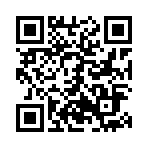2016年02月01日
The 500-word History of the English Language
Hello, all!
On Friday, one of my students asked me a great question: "Why does English have so many adjectives?" She found that often she couldn't understand English adjectives just by looking up a Japanese translation. She has to check an English-to-English dictionary!
For example, "infuriated," "angry," "incensed," "outraged," "fuming," "vexed," "irritated," and "mad" are all adjectives that describe a person who's unhappy with something. But they all have slightly different meanings and nuances! It's not just adjectives, either. Animals are a mess: when we eat "cow" we call it "beef"... but the adjective meaning "like a cow" is "bovine." For "sheep," the meat is "mutton," but the adjective is "ovine"!
What is happening?
The reason English has so many different ways to say the same thing (but with different nuances) is actually pretty simple. English has many words because it's made up of many other languages! Which languages? To answer that question, I need to give you
The 500-word History of the English Language
The history of English is the history of the languages spoken in England. We don't know much about the people who lived in England before the Celts. Only a few place names remain from their language (maybe). But sometime before the Roman Empire, the Celts settled the British Isles and English history began:
1. Celtic (until the late 400s): Very few modern English words come from Celtic vocabulary. But many linguists think that important parts of English grammar, like the fact that we use "do" in yes/no questions ("Do you know the history of English?"), actually come from Celtic grammar!
2. Latin (43 AD, and again many more times): The Roman Empire conquered the British Isles in AD 43 and introduced many Latin words. More Latin vocabulary entered English later: with missionaries in the 600's, with French in 1066, and with the Renaissance and scientific vocabularies in later times.
3. Anglo-Saxon (late 400s on): "Anglo-Saxon" is often just called, "Old English." The Saxons came to England from northern Germany, and it was their language that formed the basis for modern English. (This is why some people still consider English a "Germanic" language.) Modern English is a different language from Old English, but the "bones" of Anglo-Saxon (and lots of vocabulary!) are still here.
4. Old Norse (787–1066): The Vikings raided and settled England many times during this period. They brought many new words, and some people think they contributed to grammar too. They say you can blame the Vikings for the fact that the English infinitive is two words! (And thus the "split infinitive": "To boldly go where no one has gone before...")
5. French (1066): 1066 was the year William the Conqueror invaded England. He introduced a new upper class, all of whom spoke French as their first language. This was the other half of the modern English origin. French and Latin words became associated with the ruling class, while Anglo-Saxon words were associated with peasants. Most "bad words" in English come from Anglo-Saxon, but most "pretentious words" come from French and Latin. Thus, "cow" (Old English) was the animal the peasants raised, but "beef" (French) was what the upper class ate.
6. Greek and Latin again (the Renaissance): Around the 1400's, Middle English began to look like Modern English. But now, everyone in Europe was studying their history, and many, many Greek and Latin words (together with words from other European languages) entered English. Many of them are used for arts and sciences. Thus, "bovine" (Latin) is the word scientists use!
7. International English: Finally, the British Empire introduced words into English from all over the world: Arabic, Hindi, Chinese, Dutch, and many more languages all contributed. At the same time, American English began to separate from British English, and formed its own style.
Now, the Internet is changing English faster than ever. In 400 years, modern English will seem as strange as Shakespeare does to us now!
***
A final example: Remember all those synonyms for "angry?" They all have different histories! "Angry" is Old Norse. "Infuriated" is Latin, introduced during the Renaissance period. "Incensed" is Latin, introduced through French. "Outraged," "fuming," and "vexed" are all French. "Irritate" is modern scientific Latin. And "mad" is Old English, but also International English: "mad" means "angry" in America, but in England, it means "crazy"!
Here's a final, helpful chart I found to keep this straight:

Don't forget to click to make it big enough to read!
Enjoy!
—Matthew
On Friday, one of my students asked me a great question: "Why does English have so many adjectives?" She found that often she couldn't understand English adjectives just by looking up a Japanese translation. She has to check an English-to-English dictionary!
For example, "infuriated," "angry," "incensed," "outraged," "fuming," "vexed," "irritated," and "mad" are all adjectives that describe a person who's unhappy with something. But they all have slightly different meanings and nuances! It's not just adjectives, either. Animals are a mess: when we eat "cow" we call it "beef"... but the adjective meaning "like a cow" is "bovine." For "sheep," the meat is "mutton," but the adjective is "ovine"!
What is happening?
The reason English has so many different ways to say the same thing (but with different nuances) is actually pretty simple. English has many words because it's made up of many other languages! Which languages? To answer that question, I need to give you
The 500-word History of the English Language
The history of English is the history of the languages spoken in England. We don't know much about the people who lived in England before the Celts. Only a few place names remain from their language (maybe). But sometime before the Roman Empire, the Celts settled the British Isles and English history began:
1. Celtic (until the late 400s): Very few modern English words come from Celtic vocabulary. But many linguists think that important parts of English grammar, like the fact that we use "do" in yes/no questions ("Do you know the history of English?"), actually come from Celtic grammar!
2. Latin (43 AD, and again many more times): The Roman Empire conquered the British Isles in AD 43 and introduced many Latin words. More Latin vocabulary entered English later: with missionaries in the 600's, with French in 1066, and with the Renaissance and scientific vocabularies in later times.
3. Anglo-Saxon (late 400s on): "Anglo-Saxon" is often just called, "Old English." The Saxons came to England from northern Germany, and it was their language that formed the basis for modern English. (This is why some people still consider English a "Germanic" language.) Modern English is a different language from Old English, but the "bones" of Anglo-Saxon (and lots of vocabulary!) are still here.
4. Old Norse (787–1066): The Vikings raided and settled England many times during this period. They brought many new words, and some people think they contributed to grammar too. They say you can blame the Vikings for the fact that the English infinitive is two words! (And thus the "split infinitive": "To boldly go where no one has gone before...")
5. French (1066): 1066 was the year William the Conqueror invaded England. He introduced a new upper class, all of whom spoke French as their first language. This was the other half of the modern English origin. French and Latin words became associated with the ruling class, while Anglo-Saxon words were associated with peasants. Most "bad words" in English come from Anglo-Saxon, but most "pretentious words" come from French and Latin. Thus, "cow" (Old English) was the animal the peasants raised, but "beef" (French) was what the upper class ate.
6. Greek and Latin again (the Renaissance): Around the 1400's, Middle English began to look like Modern English. But now, everyone in Europe was studying their history, and many, many Greek and Latin words (together with words from other European languages) entered English. Many of them are used for arts and sciences. Thus, "bovine" (Latin) is the word scientists use!
7. International English: Finally, the British Empire introduced words into English from all over the world: Arabic, Hindi, Chinese, Dutch, and many more languages all contributed. At the same time, American English began to separate from British English, and formed its own style.
Now, the Internet is changing English faster than ever. In 400 years, modern English will seem as strange as Shakespeare does to us now!
***
A final example: Remember all those synonyms for "angry?" They all have different histories! "Angry" is Old Norse. "Infuriated" is Latin, introduced during the Renaissance period. "Incensed" is Latin, introduced through French. "Outraged," "fuming," and "vexed" are all French. "Irritate" is modern scientific Latin. And "mad" is Old English, but also International English: "mad" means "angry" in America, but in England, it means "crazy"!
Here's a final, helpful chart I found to keep this straight:

Don't forget to click to make it big enough to read!
Enjoy!
—Matthew
Posted by teachers at 17:00│Comments(0)
│過去の先生たち
※このブログではブログの持ち主が承認した後、コメントが反映される設定です。












